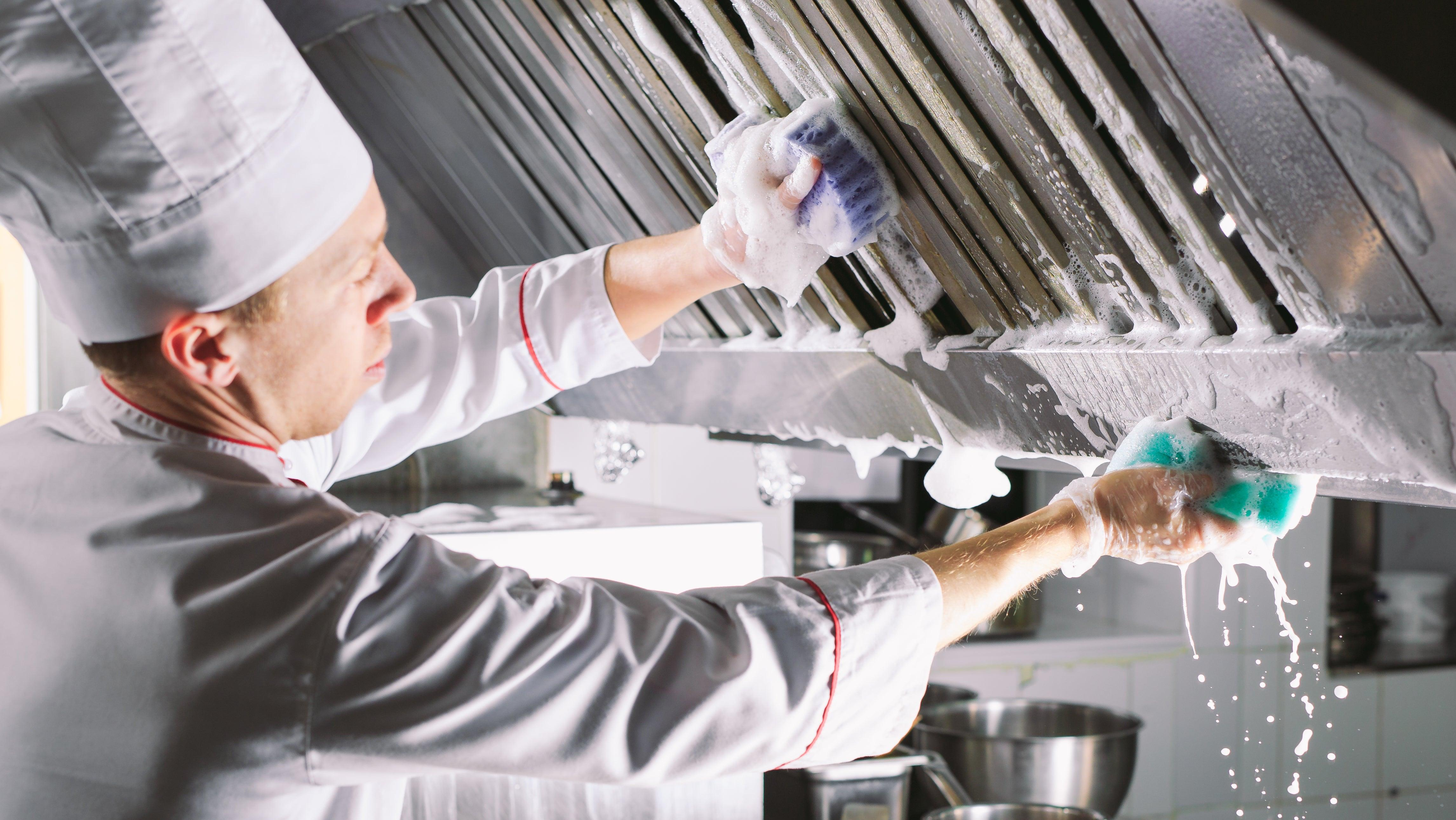The Most Important Day In Any Restaurant Kitchen
Deep cleaning day is extremely important, but if you're the one doing it, it can also be the worst.
It takes a lot of effort to run a restaurant kitchen. If you've never seen how a restaurant kitchen operates daily, you probably don't think about the least glamorous, but most important part of it: cleaning. That's because it usually happens long after you've left after your meal. There's daily cleaning, when cooks break down and clean their stations after every service, which dedicated troopers take seriously. Then there's the other type, which is deep cleaning.
The frequency depends on the restaurant and the space; some conduct a deep cleaning every week, while others limit it to once a month, depending on the volume of output and size of the space.
Cooks either despise or love it, there's no in-between. As a former restaurant cook, I fell on the hate-it end just because I find cleaning tedious and boring, even at home (I still do it). We'd try to make it fun by playing our favorite music, and sometimes we'd be treated to lunch, but even food bribery never made the task any better. The guys that liked it, though, always enjoyed surveying the results, which was a shiny kitchen that anyone would be proud to cook in.
How restaurants deep clean their kitchens
Deep cleaning day is exactly what you think it is, and hey, you probably do it at home now and then. But at a restaurant, it's a whole different ball game. The time is mandatory for all staff, and everything gets cleaned as much as possible. When I say everything, I mean everything.
If the burners were nasty, we'd soak them in a deep sink with degreaser for a long time and eventually scour them as much as possible, until all the nasty bits flaked off. What's that spot on the side of the oven? Someone would get the steel wool, scrub till their arms were sore, until there was no trace left.
And an employee would had to go scrub down the inside of the walk-in, and need to remember to bring a jacket because even in the dead of summer, it's cold in there. Walls were wiped down, and though they usually don't look too messy, one look at the towel after a few passes, and you'd be surprised at how gray it'll get.
Vents and hoods needed special attention, because aerated grease sticks to them like a magnet. So someone would get a ladder, and remove the detachable pieces and panels. Those would take a bath in degreaser, and then, of course, more scrubbing. Does your back hurt just reading those words? Imagine how you'll feel later.
Restaurant deep cleaning tricks to use at home
As much as I'd like to tell you, there aren't a ton of secret tools or tricks to the trade that you can transfer to home. Sorry, I know. We'd go through a lot of towels, so have a lot on hand and be ready to do a load of laundry right away. While we used industrial soap and sanitizer solution for scrubbing, extra-large mops, and baskets of steel wool, there's really nothing you can't get in a home-sized solution from any supermarket.
I do highly recommend a cleaning powder called Bar Keepers Friend to scrub stained metal, like sinks and pans, which you can get at some grocery stores in the cleaning supply section. That's where I get mine.
Something that I did learn on the job was to remember to pull any tables butted up against a wall away from that wall. It's extraordinarily likely that you'll find food or crumbs that have fallen behind it. I know you think you've been working tidy, but you're human. There's gonna be a secret mess. And don't forget to wipe down the wall, too.
If you're being very thorough, I also recommend you get someone to help you pull your stove away from the wall so you can get to the dust and grime that eventually add up back there. That always took a couple people at the restaurant, if not more, because those stoves weigh a ton; be thankful yours isn't like that.
The end result is important for multiple reasons
It's a thankless job, because of course, a customer isn't typically going to see the results. I mean, why would you? It's not often you'd go into the kitchen, unless you were invited back there. But if you just so happen to catch a glimpse of shiny steel prep stations, well-arranged cooking utensils, and clean stoves, take that as a good sign. Not to mention, your food won't end up with any unwanted grime in the mix. Cooks who care about their working environment always transfer that attention to their food, which means you're probably about to get a really great meal.
